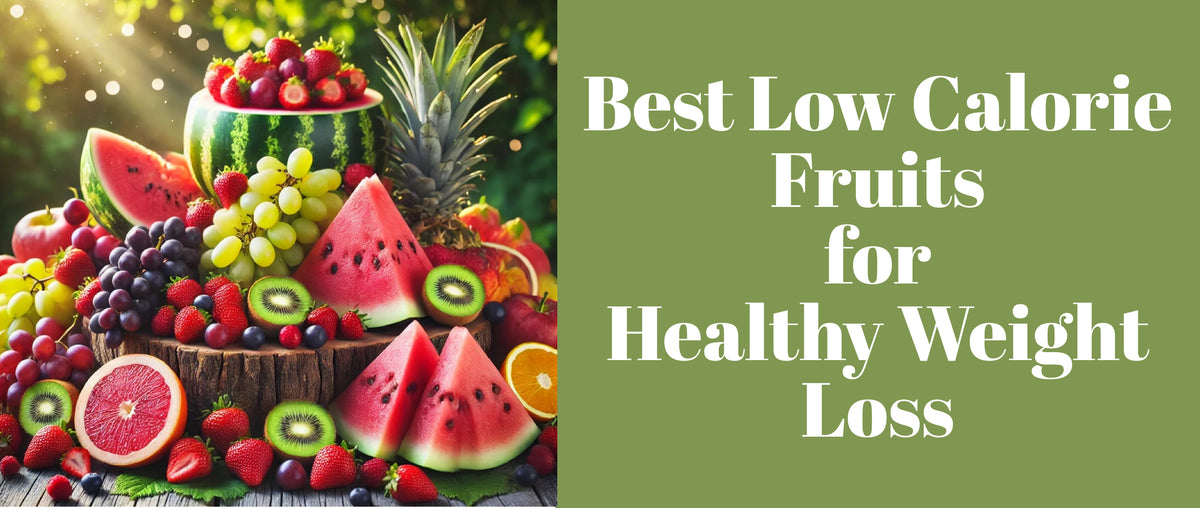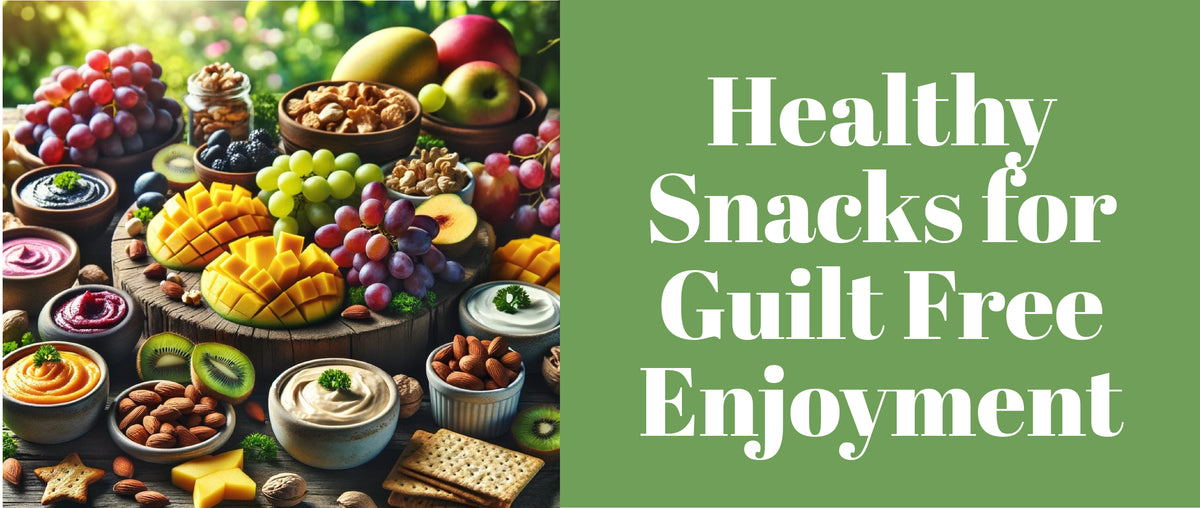Low Calories Fruits
Incorporating low calorie fruits into your diet is a delicious and effective way to promote weight loss and improve overall health. These fruits not only help you manage your calorie intake but also provide essential vitamins, minerals, and antioxidants. In this comprehensive guide, we'll explore the benefits of Low Calorie fruits, top choices for effective weight loss, and practical tips for including them in your daily meals. Understanding how these fruits contribute to a balanced diet can help you make informed choices for a healthier lifestyle.
Key Takeaways
- Best low calorie fruits: Apples, berries, melons, citrus fruits, stone fruits, kiwifruit, pineapple.
- Benefits: Aid in weight loss, nutrient-dense, high in water content, support healthy eating.
- Tips: Easy recipes and snack ideas, how to buy and store fruits.
Benefits of Low Calorie Fruits
Low Calorie fruits offer numerous health benefits, making them an excellent choice for anyone looking to maintain or lose weight while ensuring they receive essential nutrients. These fruits are naturally low in calories but high in fiber, which helps you feel full longer and reduces overall calorie intake. They are also packed with vitamins, minerals, and antioxidants that support overall health, boost the immune system, and enhance muscle recovery after workouts. Additionally, fruits like watermelon and oranges have high water content, which aids in hydration and keeps you feeling full, supporting a healthy diet.
Weight Loss
Low Calorie fruits are naturally low in calories but high in fiber, which helps you feel full longer and reduces overall calorie intake. This can be particularly beneficial when aiming for fat free cheese or low fat cheese options in your diet. The fiber content in fruits slows down digestion and helps maintain steady blood sugar levels, preventing overeating. Incorporating these fruits into your meals and snacks can be a strategic way to reduce overall calorie consumption while still enjoying a variety of flavors and textures.

Nutrient Density
Low Calorie fruits are packed with essential vitamins, minerals, and antioxidants that are crucial for maintaining overall health. These nutrients support various bodily functions, including immune system strength, skin health, and muscle recovery. For instance, berries are rich in antioxidants like vitamin C and flavonoids, which can help protect your cells from damage. By choosing nutrient-dense fruits, you ensure that your body receives the necessary nutrients without the extra calories, making it easier to stick to a healthy eating plan.
Hydration
Many Low Calorie fruits have high water content, which not only helps with hydration but also aids in weight management. Fruits like watermelon, oranges, and strawberries are excellent choices to keep you hydrated, especially during hot weather or after exercise. Proper hydration is essential for various bodily functions, including digestion, circulation, and temperature regulation. Additionally, the water content in these fruits can help you feel fuller for longer, reducing the likelihood of overeating and helping you stay on track with your weight loss goals.
Understanding the Role of Fruits in Weight Loss
Fruits play a vital role in weight loss due to their low calorie and high-fiber content. They provide a sweet and satisfying alternative to high protein snacks, helping to curb sugar cravings and promote healthy eating. The natural sugars in fruits are balanced with fiber, which slows down the absorption of sugar into the bloodstream, preventing spikes in blood sugar levels. This balance helps maintain energy levels and reduces the temptation to reach for unhealthy snacks, making fruits an essential part of a weight loss-friendly diet.
Vegetables
While fruits are a fantastic Low Calorie option, don't forget about the benefits of Low Calorie vegetables. Vegetables like spinach, cucumbers, and bell peppers are also great for weight loss and overall health. These vegetables are low in calories but high in essential nutrients, making them perfect for adding bulk to your meals without the extra calories. They are also versatile and can be included in salads, stir-fries, or as snacks with healthy dips. Incorporating a variety of Low Calorie vegetables and fruits into your diet ensures that you receive a broad spectrum of nutrients necessary for optimal health.
Fruits
Fruits are a natural source of energy and nutrients. They are convenient to consume and can be included in various forms, such as whole fruits, smoothies, or salads. Each fruit offers a unique combination of vitamins, minerals, and antioxidants, contributing to your overall well-being. For example, apples are high in fiber and vitamin C, while bananas provide potassium and vitamin B6. Including a variety of fruits in your diet can help you achieve a balanced intake of essential nutrients, supporting both weight management and overall health.
Sides
Adding fruits to your meals as sides can enhance their nutritional value. Consider adding slices of apples to your breakfast or a handful of berries to your lunch salad. Fruits can also be a great addition to dinner plates, complementing savory dishes with their natural sweetness and providing a burst of vitamins and minerals. By incorporating fruits into your meals as sides, you can increase your intake of Low Calorie, nutrient-dense foods, making it easier to maintain a healthy diet and achieve your weight loss goals.
Condiments and Flavorings
Use fruits as natural sweeteners and flavorings. For example, lemon juice can add a tangy zest to dishes without adding extra calories, while fresh berries can sweeten desserts naturally. Other fruits like mangoes or pineapples can be blended into salsas or sauces to add a touch of sweetness and enhance flavor profiles. Utilizing fruits in this way helps reduce the need for added sugars and artificial sweeteners, making your meals healthier and more nutritious. This approach aligns with a gluten-free diet by focusing on natural, whole ingredients.
Drinks
Low Calorie drinks, such as fruit-infused water or smoothies, are excellent options for staying hydrated and satisfying your sweet tooth. Creating smoothies with fruits like berries, spinach, and a touch of kombucha can provide a nutrient-packed beverage that supports weight loss and overall health. These drinks are easy to prepare and can be customized to suit your taste preferences and nutritional needs. Incorporating Low Calorie drinks into your diet helps maintain hydration and provides essential nutrients without the extra calories found in sugary beverages.
Top Low Calorie Fruits
Apples
Apples are a versatile and widely available fruit that is low in calories and high in fiber. They are rich in vitamin C and antioxidants, which help boost the immune system and protect against disease. Apples can be enjoyed as a snack, added to salads, or baked into healthy desserts. Their natural sweetness makes them a satisfying alternative to sugary snacks, helping to curb cravings and support weight loss efforts.
Berries (Strawberries, Blueberries, Raspberries)
Berries are not only low in calories but also packed with essential nutrients. They are high in fiber, vitamins, and antioxidants, which support overall health and can aid in weight loss. Berries can be added to smoothies, oatmeal, or yogurt for a delicious and nutritious boost. Their vibrant colors and sweet-tart flavors make them a favorite choice for many health-conscious individuals, providing a satisfying and healthy snack option.
Melons (Watermelon, Cantaloupe, Honeydew)
Melons are hydrating and low in calories, making them an excellent choice for weight loss. They are high in vitamins A and C, which are important for skin health and immune function. Melons can be enjoyed on their own, added to fruit salads, or blended into refreshing smoothies. Their high water content helps keep you hydrated and feeling full, reducing the likelihood of overeating and supporting your weight loss goals.
Citrus Fruits (Oranges, Grapefruits, Lemons)
Citrus fruits are known for their high vitamin C content, which boosts the immune system and promotes healthy skin. They are also low in calories and high in fiber, making them ideal for weight loss. Citrus fruits can be eaten fresh, juiced, or used to add flavor to a variety of dishes. Their tangy and refreshing taste makes them a popular choice for snacks and beverages, helping to satisfy sweet cravings without the extra calories.
Stone Fruits (Peaches, Plums, Cherries)
Stone fruits are low in calories and rich in vitamins, minerals, and antioxidants. They are particularly high in vitamins A and C, which are essential for eye health and immune function. Stone fruits can be enjoyed fresh, added to salads, or used in healthy desserts. Their juicy and sweet flavors make them a delicious addition to any diet, providing a satisfying and nutritious snack option that supports weight loss.
Kiwifruit
Kiwifruit is a nutrient-dense, Low Calorie fruit that is high in vitamins C and E, potassium, and fiber. It has a unique sweet-tart flavor and can be eaten on its own, added to fruit salads, or blended into smoothies. The high fiber content of kiwifruit helps support digestive health and keeps you feeling full, making it an excellent choice for weight management. Additionally, the antioxidants in kiwifruit help protect against cellular damage and support overall health.
Pineapple
Pineapple is a tropical fruit that is low in calories and high in vitamins C and B6, manganese, and bromelain, an enzyme that aids in digestion. Pineapple can be enjoyed fresh, grilled, or blended into smoothies. Its natural sweetness and juiciness make it a popular choice for healthy snacks and desserts. Incorporating pineapple into your diet can help satisfy sweet cravings and support weight loss efforts while providing essential nutrients for overall health.

Top Fruits for Effective Weight Loss
When it comes to effective weight loss, certain fruits stand out due to their Low Calorie content and high nutritional value. Berries, such as strawberries and blueberries, are particularly beneficial due to their high fiber and antioxidant content. Apples and pears are also excellent choices, as their high fiber content helps keep you full and satisfied. Citrus fruits, like grapefruits and oranges, are low in calories and high in vitamin C, which can boost your immune system and support weight loss. By incorporating these top fruits into your diet, you can enjoy delicious and nutritious options that aid in weight loss and promote overall health.
Comparing Low Calorie Fruits
| Fruit | Calories per 100g | Key Nutrients | Health Benefits |
|---|---|---|---|
| Apples | 52 | Vitamin C, fiber | Boosts immune system, aids digestion |
| Strawberries | 32 | Vitamin C, antioxidants | Supports heart health, anti-inflammatory |
| Watermelon | 30 | Vitamin A, vitamin C | Hydrating, supports skin health |
| Oranges | 47 | Vitamin C, fiber | Boosts immune system, aids in digestion |
| Peaches | 39 | Vitamin A, vitamin C | Supports eye health, boosts immunity |
| Kiwifruit | 61 | Vitamin C, fiber | Supports digestion, high in antioxidants |
| Pineapple | 50 | Vitamin C, manganese | Aids digestion, supports bone health |
Nutritional Benefits Comparison
| Fruit | Vitamin C (%DV) | Fiber (g) | Antioxidants | Additional Benefits |
|---|---|---|---|---|
| Apples | 14% | 2.4 | Flavonoids | Supports weight loss, low in calories |
| Strawberries | 97% | 2 | Anthocyanins, ellagic acid | Anti-inflammatory, boosts heart health |
| Watermelon | 21% | 0.4 | Lycopene | Hydrating, promotes skin health |
| Oranges | 89% | 2.4 | Flavonoids, carotenoids | Boosts immune system, aids digestion |
| Peaches | 11% | 1.5 | Carotenoids | Supports eye health, boosts immunity |
| Kiwifruit | 154% | 3 | Polyphenols | Supports digestion, high in antioxidants |
| Pineapple | 79% | 1.4 | Bromelain | Aids digestion, supports bone health |
Incorporating Low Calorie Fruits into Your Diet
To incorporate Low Calorie fruits into your diet for effective weight loss, consider the following tips:
- Enjoy fruits as snacks between meals to curb hunger and cravings.
- Add berries to your breakfast oatmeal, yogurt, or smoothies for a nutrient boost.
- Include sliced apples or pears in your lunch salads for added fiber and crunch.
- Snack on citrus fruits like oranges or grapefruits for a refreshing and hydrating treat.
- Use fruits like pineapple or kiwifruit in your post-workout smoothies to aid recovery and digestion.
- Experiment with different fruit combinations to create delicious and nutritious salads, snacks, and desserts.
By making Low Calorie fruits a regular part of your diet, you can enjoy the benefits of their nutrients while supporting your weight loss goals and overall health.
Incorporating Low Calorie Fruits Into Your Diet
Smoothies and Juices
- Smoothies and juices are an excellent way to enjoy a variety of fruits in one delicious drink. Blend your favorite Low Calorie fruits with a handful of spinach, a scoop of protein powder, and a splash of almond milk for a nutritious and filling smoothie. Adding a bit of Kombucha can also enhance the flavor and provide additional health benefits. Smoothies can be customized to suit your taste preferences and dietary needs, making them a versatile and convenient option for incorporating more fruits into your diet.
Snacks
- Fruits make for easy and healthy snacks. Pack an apple or a small container of berries for a mid-morning or afternoon snack. Pairing fruits with a source of protein, such as a handful of nuts or a slice of Vegan Cheese, can help keep you full and satisfied. These snacks are portable, quick to prepare, and perfect for on-the-go, making it easier to make healthy choices throughout the day.
Salads
- Adding fruits to your salads can enhance their flavor and nutritional value. Try combining spinach, strawberries, and walnuts for a refreshing and nutrient-packed salad. Citrus fruits like oranges or grapefruits can add a tangy twist to mixed greens. Incorporating fruits into your salads not only adds natural sweetness and texture but also boosts your intake of vitamins and antioxidants, supporting a balanced and healthy diet.
Desserts
- Fruits can be used to create healthy and delicious desserts. Grilled peaches with a drizzle of honey, mixed berries with a dollop of Greek yogurt, or a fruit salad with a squeeze of lime juice are all tasty options. These desserts satisfy your sweet tooth without the extra calories and sugar found in traditional desserts. By choosing fruit-based desserts, you can enjoy a treat that is both satisfying and beneficial for your health.
Tips for Buying and Storing Fruits
Buying Tips
- Choose fruits that are in season for the best flavor and nutritional value.
- Look for fruits that are firm, free of bruises, and have a vibrant color.
- Shop at local farmers' markets to find fresh, locally-grown produce.
Storing Tips
- Store fruits like apples and oranges in the refrigerator to keep them fresh longer.
- Keep bananas and avocados at room temperature until they ripen, then refrigerate to extend their shelf life.
- Wash and dry berries before storing them in the refrigerator to prevent mold growth.
Proper storage helps maintain the quality and nutritional value of fruits, making it easier to include them in your diet regularly.
Conclusion
Low Calorie fruits are a delicious and nutritious addition to any diet, offering numerous benefits for weight loss and overall health. By incorporating a variety of fruits into your meals and snacks, you can enjoy their natural sweetness and essential nutrients while managing your calorie intake. Whether you prefer apples, berries, melons, or citrus fruits, these Low Calorie options provide a satisfying way to support a healthy lifestyle. Make fruits a staple in your diet to reap the benefits of their nutritional value and enhance your journey toward better health.










